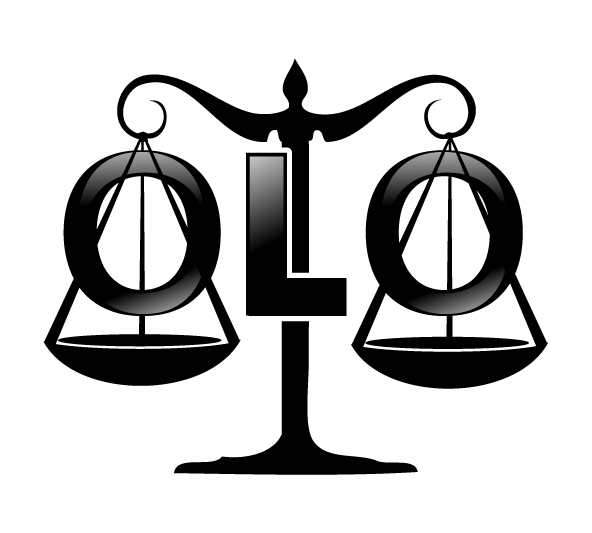What Is An Estate Plan?
An estate plan is a set of legal documents that outline how your assets will be managed and distributed after death, including a will, power of attorney, health care proxy, and trust. It aims to fulfill your last wishes, minimize taxes and fees, and protect loved ones and assets. It’s essential for anyone wanting control over their affairs, regardless of the size of the estate. Estate planning involves careful consideration of assets, debts, and beneficiaries and can be simplified by consulting an experienced estate planning attorney.
Why Is Estate Planning Important?
Estate planning ensures that assets are distributed to chosen individuals or organizations, avoiding intestacy laws and potential disputes among family members. It also minimizes estate taxes by using strategies like trusts and gifting, maximizing the amount passed on to heirs. Additionally, estate planning allows for an executor or representative to handle financial and healthcare matters on the individual’s behalf, preventing unnecessary court intervention and ensuring the wishes are followed.
Components Of A Comprehensive Estate Plan
A comprehensive estate plan typically includes several key components:
- A will is a legal document that outlines the distribution of your assets, appoints guardians, and specifies funeral and burial arrangements after death.
- A power of attorney is a legal document appointing an agent to manage your financial affairs in case of incapacitation, including bank accounts, investments, and property.
- Health care proxy: A healthcare proxy, or durable power of attorney, appoints someone to make medical decisions on your behalf, ensuring your wishes are followed during treatment and end-of-life care.
- Trust: A trust is a legal entity that manages assets for your beneficiaries, allowing control over distribution, tax minimization, and probate avoidance, suitable for minors, special needs, or charitable organizations.
A comprehensive estate plan, based on certain components, may require additional documents and strategies, and consulting an estate planning attorney can help determine the most suitable components.
Cost Factors To Consider When Creating An Estate Plan
Here are some key considerations regarding the financial implications of making your estate plan:
- Attorney fees: An estate planning attorney can prepare documents like wills, trusts, and more, customize your estate plan, and keep it in compliance with state laws. Legal fees vary based on complexity of your estate and the attorney’s experience.
- Asset valuation: Estate planning necessitates asset valuation, often involving an appraiser to evaluate real estate, businesses, or other valuable possessions, with fees varying based on complexity and number of assets involved.
Trust administration: Trust administration expenses that your executor may face after you pass away (or that can be accounted for ahead of time) include trustee compensation, accounting fees, and tax filing fees, varying based on trust structure complexity and assets held.
- Probate fees: Probate is the legal process of administering a deceased’s estate, potentially causing court fees and other expenses that would otherwise fall on your family. Proper estate planning can help minimize these costs.
Working With An Attorney vs. Using Online Templates
When it comes to estate planning, it may seem cost-effective to use online templates or software rather than to pay legal fees, but there are several drawbacks. Firstly, these options do not provide a customized approach to fit your unique situation. Working with an experienced attorney can ensure that your plan is tailored to your specific needs and goals.
Secondly, estate planning involves complex legal and financial matters. An attorney can provide advice and guidance that an online template cannot. An attorney can also give you peace of mind that your plan is thorough, effective, and legally binding. Although working with an attorney has higher upfront costs, the long-term benefits and sense of security are worth the investment. It is not advisable to take unnecessary risks when it comes to estate planning.
Average Cost Of Creating An Estate Plan
The cost of creating an estate plan can vary greatly based on factors such as the amount of your estate, the lawyer’s experience, and your geographic location. Although it is difficult to provide a precise figure, understanding basic averages is important. Standard estate planning services, such as wills, powers of attorney, and health care proxies, can cost $500 to $3,000 or more. This normally entails consulting with a lawyer, drafting documents, and putting them into action.
The expense of establishing a trust as part of your estate strategy can rise. Depending on the type of trust and the complexity of your assets, trust fees might range from $1,000 to $5,000 or more. Please keep in mind that these are estimates, and the actual cost may vary depending on your specific situation. Consulting with an estate planning attorney will give you a better idea of what expenditures to expect.
Additional Expenses To Budget For In Estate Planning
In addition to the core costs mentioned above, there may be additional expenses to consider when creating an estate plan. These can include:
- Tax planning
- Financial planning:
- Long-term care planning:
- Review and updates
- And more….
By budgeting for these additional expenses, you can ensure that your estate plan remains comprehensive and up to date.
Ways To Save Money On Estate Planning Costs
When it comes to estate planning, there are numerous ways that you can cut costs without sacrificing the quality of your plan. Some useful tips to consider are:
Doing research and comparing attorneys: Spend some time researching estate planning attorneys in your area and look for those with transparent and reasonable fee structures. Have Effective Strategy Meeting with more than one attorney so that you can get a feel for the different ways they approach estate planning and the costs associated with their services.
Being organized: Before meeting with an attorney, collect all the required documents and information. This will save time and reduce the number of hours billed. Have clear instructions and be ready to answer any questions.
Looking into flat fees: Certain attorneys offer flat fees for basic estate planning services. This can be beneficial as it provides cost certainty and removes the worry of hourly billing. Ask your attorney about any package deals they may have.
Updating your plan regularly: As you keep your estate plan up-to-date, you can prevent costly and lengthy legal issues in the future. Making small updates over time is more economical than completely revising your plan at once.
Save money without sacrificing the quality of your estate plan. Strike a balance between cutting costs and getting the help you need.
Call Osenton Law Today For A Effective Strategy Meeting!
Creating a comprehensive estate plan is a crucial step in ensuring the protection of your assets and the well-being of your loved ones. While there are costs involved, understanding the breakdown of expenses can help you budget effectively and make informed decisions. Working with an experienced estate planning attorney is essential to ensure that your plan is tailored to your unique circumstances and legally sound.
At Osenton Law, P.A., we are dedicated to providing you with the highest quality of service and legal representation. If you have any questions or concerns, please do not hesitate to contact us and see how we can help.

